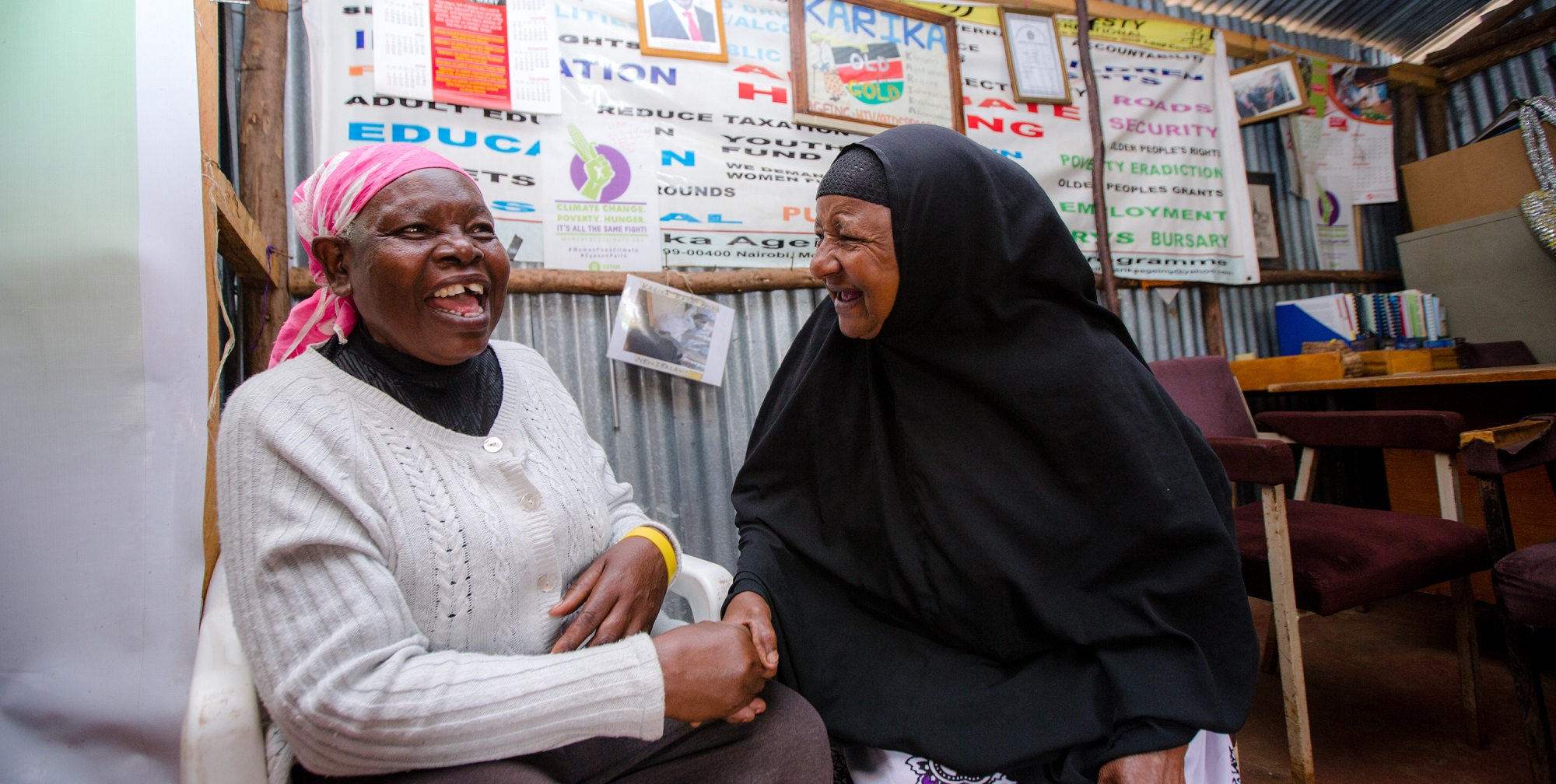
Millions of older people around the world continue to be subjected to ageism – they describe feeling stigmatised, humiliated, condescended to and patronised. They tell us they are denied autonomy, respect and dignity – general principles that underline human rights. This results in degrading treatment, humiliation, discrimination and is a denial of human rights.
There is also a lack of awareness and understanding of older people’s needs and rights among policy makers and service providers.
Older people are among those worst affected by disasters. In the Japanese tsunami of 2011, 56% of those who died were aged 65 and over, despite this age group comprising just 23% of the population. In the Nepal earthquake 29% of people who died were aged 60 and older.
A recent HelpAge report, which analysed 16,000 proposed humanitarian projects between 2010 and 2014, found less than 1% of humanitarian financing goes towards older people.
Making sure older men and women are counted
Older people are frequently excluded from international and national surveys and data, which can lead to an exclusion from services. For example, women aged 50 and above are regularly ignored in data collection, yet they account for 24% of the world’s women.
Lilian, 58, is a HIV-positive widow in Kenya who looks after her 89-year-old mother, three orphaned grandchildren and two boys who were abandoned by their parents. Yet because she is over 49, she’s excluded from statistics on HIV, including the Demographic and Health Survey and UNICEF’s Multiple Indicator Cluster Survey.
Not being counted in statistics and survey means a denial of and exclusion from information, and prevention and support services, including access to justice.
Furthermore, discrimination based on gender often intersects with discrimination on the grounds of other characteristics, such as age, marital status, race, sexual orientation, and class. The intersection of gender and age-based discrimination results in people being subjected to new and distinct forms of discrimination in older age, and can amplify gender inequality.
UN member states must act
So how can member states meet their human rights obligations towards older people, including access to remedies and redress?
Two weeks ago in Geneva the UN’s Independent Expert on the enjoyment of all human rights by older persons revealed her findings to the Human Rights Council.
Her report is significant because it reaches a conclusion on a key area of discussion at the UN Open-ended Working Group on Ageing. Namely, whether the implementation of the Madrid International Plan of Action on Ageing (MIPAA) and existing law is sufficient to address the unique human rights challenges that older persons face.
Her findings affirmed that neither MIPAA nor the implementation of existing law is enough to fully protect older people’s rights.
Without a convention, millions of older people continue to be subjected to ageism, discrimination and denied their human rights.
To quote Tilahun, an older person activist from Ethiopia: “In Ethiopia, people say we don’t have any value. I don’t accept that. We shouldn’t accept the negative things people say about older people. We need to start challenging these attitudes.”
Ageism is a driving force behind discrimination and the denial of older people’s rights. While other forms of discrimination are prohibited by law, age discrimination is often not, including under international human rights law.
A new UN convention on the rights of older people is critical to changing ageist attitudes and protecting the rights of older people. And to ensure that a new convention is as effective and as relevant as it can be, older people and their experiences of ageism must be a part of every discussion and debate on their human rights and how best to protect them, including a new convention.
Get involved in International Day of Older Persons:
- Tell us why you’re taking a stand against ageism on International Day of Older Persons.
- Explore the different ways older people around the world experience ageism in our Exposure photo blog.
- Watch our film to hear older men and women speak about how ageism affects them.
This blog was adapted from a speech delivered by Justin Derbyshire at the World Health Organization’s International Day of Older Persons event in Geneva on 30 September.
